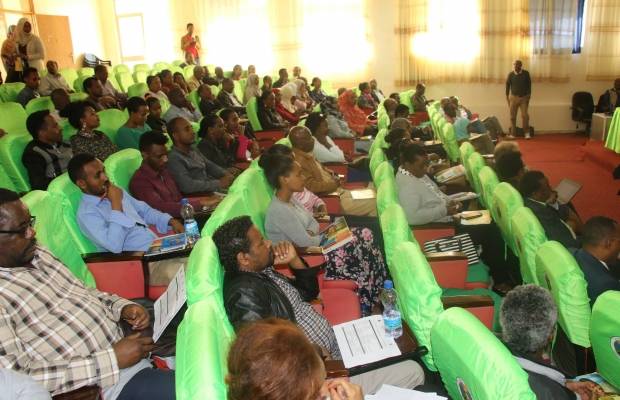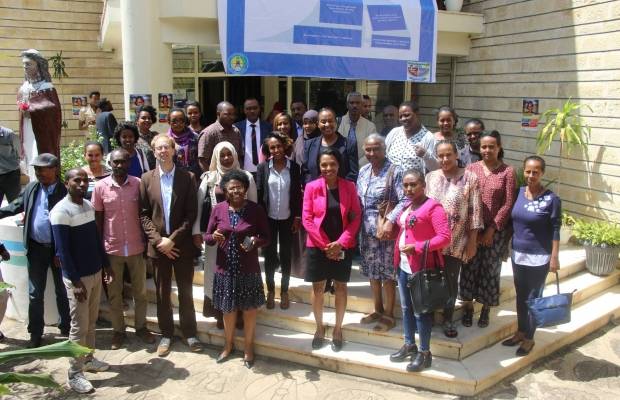Women on the rise in Ethiopia
On the day that the first female President of Ethiopia was inaugurated, university leaders undersigned the Roadmap to Gender equality in Eastern Ethiopian universities during a workshop at Haramaya University. This marked the end of a participative, bottom-up process, facilitated by MSM and funded by Nuffic.
 In his opening statement, Prof Jeyilan Woliye, Vice President for administration and student affairs of Haramaya University, welcomed the initiative and stressed the importance of strict and consistent strategic efforts towards women empowerment in his country. Prof Jeyilan pointed at the need to create an enabling environment for women to become leaders. In this context, he applauded the recent decision of the Prime Minister who assigned 50% of the ministerial positions in the national cabinet to women. Furthermore, he urged to remove the negative stereotypes of women, because they hamper development.
In his opening statement, Prof Jeyilan Woliye, Vice President for administration and student affairs of Haramaya University, welcomed the initiative and stressed the importance of strict and consistent strategic efforts towards women empowerment in his country. Prof Jeyilan pointed at the need to create an enabling environment for women to become leaders. In this context, he applauded the recent decision of the Prime Minister who assigned 50% of the ministerial positions in the national cabinet to women. Furthermore, he urged to remove the negative stereotypes of women, because they hamper development.
Huub Mudde, Senior Project Consultant of MSM, complimented the work done by the local team and explained that MSM gives specific attention to gender and women empowerment in its work globally, and Ethiopia in particular. He concluded with making a moral appeal on the audience, stressing the exemplary role of universities.
At the workshop, representatives of the Ministry of Women, Children and Youth, the Ministry of Education, and regional governmental bodies gathered, together with leaders and staff of Haramaya University, Dire Dawa University, Jigjiga University, Samara University, Addis Ababa University and Jimma University. There was a strong sense of urgency and will to implement the roadmap. Compliments were addressed to the team, in particular to the coordinator and motor of the initiative, Mulu Berhane.
The roadmap is meant to create a gender sensitive working environment and to empower women in Eastern Ethiopia universities as well as within the communities they serve. The ambition is for the Eastern Ethiopia universities to become known for their excellence in gender equality and women empowerment by 2025. It encompasses many activities clustered in four strategic directions: 1) Strengthen women’s agency (collective and individual); 2) Enhance gender sensitivity of the institutions (rules, social norms and practices); 3) Improve gender related knowledge and skills, and 4) Build sector-wide commitment to achieve gender equality.
serve. The ambition is for the Eastern Ethiopia universities to become known for their excellence in gender equality and women empowerment by 2025. It encompasses many activities clustered in four strategic directions: 1) Strengthen women’s agency (collective and individual); 2) Enhance gender sensitivity of the institutions (rules, social norms and practices); 3) Improve gender related knowledge and skills, and 4) Build sector-wide commitment to achieve gender equality.
Find here the detailed strategic roadmap and the summary roadmap poster.
Related news
Integrating Gender in Agro-Value Chain Development in Ethiopia
Empowering women in the Ethiopian health sector
Participative development of women entrepreneurship strategy and policy framework in Palestine
Fighting sexual and gender based violence in the Great Lakes Region

